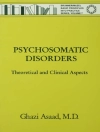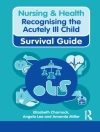This book provides an in-depth review of knowledge of the corpus callosum, called white matter or terra incognita, with emphasis on anatomical, embryological, diagnostics, and surgical features. It includes very informative chapters from leaders in the field, organized into six main groups: first, the embryology, neuroanatomy, and morphometry of the corpus callosum, and animal studies related to it; secondly, neurophysiological aspects, callosal disconnection and the split brain; thirdly, neuropathology, including clinical disorders such as dementia, Tourette syndrome, and schizophrenia; fourthly, surgical procedures including partial and complete callosotomy and commissurotomy; fifthly, cognitive neuroscience; and sixthly, other features of the corpus callosum, including its medicolegal aspects and statistical shape analysis. This comprehensive reference book will be an ideal source for neuroscientists at all levels, from graduate students to researchers in specific disciplines studying this region including neuroanatomists, embryologists, neurosurgeons, neurologists, neuroradiologists and pediatricians, who seek both basic and more advanced information regarding the distinctive anatomical, physiological and pathological features of the human corpus callosum.
Daftar Isi
Part 1. Embryology and Neuroanatomy of the Corpus Callosum Editor’s Summary .- Chapter 1. History of the Corpus Callosum.- Chapter 2. Embryonic Development and Myelination of the Corpus Callosum.- Chapter 3. Histogenesis and Developmental Disorders of the Corpus Callosum.- Chapter 4. Morphologic Anatomy of the Corpus Callosum.- Chapter 5. Morphometry of the Corpus Callosum.- Chapter 6. Sex- and Age-Related Differences in the Corpus Callosum.- Chapter 7. Animal Studies Related with the Corpus Callosum.- Chapter 8. Microsurgical Anatomy of the Corpus Callosum.- Chapter 9. Structural Connectivity of the Corpus Callosum to Other Cortical Regions.- Chapter 10. Neuroimaging Techniques for Investigation of the Corpus Callosum.- Chapter 11. Prenatal Diagnosis of Anomalies of the Corpus Callosum with Three-Dimensional Ultrasound, Transvaginal Sonography and Fetal MRI.- Chapter 12. Volume Measurements of the Corpus Callosum Volume using MRI.- Part 2. Neurophysiology of the Human Corpus Callosum Editor’s Summary.- Chapter 13. Surgical Techniques for Callosal Disconnection.- Chapter 14. Functional Significance of the Split Brain.- Chapter 15. Handedness and the Corpus Callosum.- Chapter 16. Role of the Corpus Callosum in Decision Making.- Part 3. Congenital and Acquired Neuropathology of the Corpus Callosum Editor’s Summary .- Chapter 17. Agenesis or Hyoplasia of the Corpus Callosum.- Chapter 18. Thick Fetal Corpus Callosum.- Chapter 19. Vascular Lesions of the Corpus Callosum.- Chapter 20. Toxic Lesions of the Corpus Callosum.- Chapter 21. Infectious Diseases of the Corpus Callosum.- Chapter 22. Inflammatory and Demyelinating Diseases of the Corpus Callosum.- Chapter 23. Metabolic Pathologies of the Corpus Callosum .- Chapter 24. Traumatic Axonal Lesions of the Corpus Callosum.- Chapter 25. Tumoral Lesions of the Corpus Callosum.- Chapter 26. Iatrogenic Lesions of the Corpus Callosum.- Chapter 27. Other Lesions of the Corpus Callosum.- Chapter 28. Corpus Callosum in Hydrocephalus .- Chapter 29. Corpus Callosum in Dementia.- Chapter 30. Changes in Callosal Area in Tourettes Syndrome.- Chapter 31. Callosal Abnormalities in Schizophrenia.- Chapter 32. Corpus Callosum in Autism Spectrum Disorder .- Part 4. Surgery of the Corpus Callosum Editor’s Summary .- Chapter 33. Partial and Complete Callosotomy of the Corpus Callosum .- Chapter 34. Commissurotomy of the Corpus Callosum.- Chapter 35. Endoscope-Assisted Microsurgery of the Corpus Callosum.- Part 5. Cognitive Neuroscience Editor’s Summary.- Chapter 36. The Role of the Corpus Callosum in Human Cognition and Anesthesia.- Chapter 37. Corpus Callosum as Anatomical Marker of Intelligence.- Chapter 38. Corpus Callosum in Dichotic Listening.- Chapter 39. Corpus Callosum in Attention-Deficit/Hyperactivity Disorder.- Part 6. Other Features of the Corpus Callosum Editor’s Summary.- Chapter 40. Medicolegal Aspects of Corpus Callosum.- Chapter 41. Statistical Shape Analysis of Corpus Callosum.- Conclusion.
Tentang Penulis
Mehmet Turgut, MD, Ph D, is Professor of Neurosurgery at Aydın Adnan Menderes University School of Medicine, Aydın, Turkey. He graduated from the Ege University School of Medicine, İzmir, Turkey and later specialized in neurosurgery in Hacettepe University Hospitals, Ankara, Turkey. In 2004, he received the Ph D degree from the Department of Embryology and Histology, Ege University Health Sciences Institute, İzmir, Turkey. His fields of expertise and research interests are broad and include developmental neuroscience, pediatric neurosurgery, infectious diseases of the central nervous system, and peripheral nerve surgery. Dr. Turgut is an editorial board member for 25 international journals including European Spine Journal, Surgical Neurology International, Journal of Neurological Surgery Part A: Central European Neurosurgery, Journal of Spine, Journal of Pediatric Neurology, Journal of Brachial Plexus and Peripheral Nerve Injury, Journal of Spine & Neurosurgery, and Journal of Neurosciences in Rural Practice and a reviewer for a wide range of international journals and research programs. Dr. Turgut is the lead or co-author of more than 300 papers in peer-reviewed journals and about 74 book chapters and he is one of the editors in 16 books including Pituitary Apoplexy, Hydatidosis of the Central Nervous System: Diagnosis and Treatment, Complications of CSF Shunting in Hydrocephalus: Prevention, Identification and Management, The Chiari Malformations, The Sutures of the Skull: Anatomy, Embryology, Imaging, and Surgery; Subdural Hematoma: Past to Present to Future Management, Arachnoid Cysts: State-of-the-Art.
R. Shane Tubbs, MS, PA-C, Ph D is Professor of Neurosurgery, Neurology, Surgery, and Structural & Cellular Biology at Tulane University School of Medicine, New Orleans, Louisiana, USA, Department of Neurosurgery at the Ochsner Health System, New Orleans, Louisiana, USA, and Department of Anatomical Sciences at St. George’s University, Grenada.He has honorary professorships at multiple world-wide universities. Dr. Tubbs’ research interests are centered on so-called “reverse translational anatomy research”, where clinical problems are identified and solved with anatomical studies. This investigative paradigm has resulted in over 2, 000 peer-reviewed publications. Dr. Tubbs sits on the editorial boards of over 20 clinical/anatomical journals and has reviewed for over 150 scientific journals. He has been a visiting professor to major institutions in the US and worldwide. He has authored over 50 books. His textbooks include The Chiari Malformations, editions 1 and 2, Gray’s Anatomy Review, Gray’s Clinical Photographic Dissector of the Human Body, editions 1-3, Netter’s Introduction to Clinical Procedures, Netter’s Atlas of Human Anatomy editions 5-8, Anatomy for Plastic Surgery of the Face, Head, and Neck, Nerves and Nerve Injuries volumes I and II, A History of Human Anatomy, and Bergman’s Comprehensive Encyclopedia of Human Anatomic Variation. He is an editor for the 41st and 42nd editions of Gray’s Anatomy and is editor-in-chief of the journal Clinical Anatomy and the 43rd edition of Gray’s Anatomy.
Ahmet Tuncay Turgut, MD, is Professor of Radiology at Ankara Medipol University Faculty of Medicine in Ankara, Turkey. He has nearly 25 years experience in the field of radiology with key roles in diagnostics, academics and administration. Dr. Turgut’s research interests include diagnostic and interventional oncologic imaging and the use of hybrid imaging techniques for the diagnosis and treatment of cancers in particular. He has published more than 100 original papers in peer-reviewed journals and has authored 60 chapters in several textbooks in English. He is editor of three reference books published by Springer. Dr. Turgut has given more than 90 invited lectures at distinguished scientific meetings including the European Congress of Radiology and Annual Meetings of the American Institute of Ultrasound in Medicine (AIUM) and European Society of Urogenital Radiology (ESUR). He served as the Congress President in ESUR 2013, 20th Annual Meeting of the ESUR held in Istanbul, Turkey. He has been honored as an elected-fellow of the ESUR in 2006. He served as executive board member and general secretary of the Turkish Society of Radiology from 2011 to 2013.
Cuong C. J. Bui, MD, FAANS, is Professor and Head of the Department of Neurosurgery at the Ochsner Health System and is Co-Director of the Ochsner Neuroscience Institute in New Orleans, Louisiana. He is also Program Director for the combined Tulane-Ochsner Neurosurgery Residency Program and Professor in the Department of Neurosurgery at Tulane University School of Medicine and at the University of Queensland School of Medicine, Brisbane, Australia. He is a board-certified neurosurgeon and completed a fellowship in pediatric neurosurgery. He serves on the Board of Directors of the Ochsner Health System and is the current President of the Louisiana Association of Neurologic Surgeons. He has served on numerous academic committees and has published over 50 peer-reviewed papers and book chapters in major neurosurgical textbooks. Dr. Bui is active in neurosurgical resident education and research.












